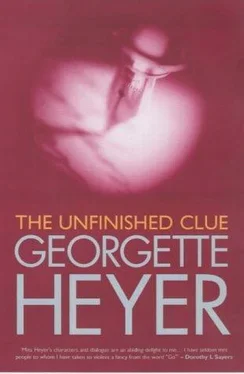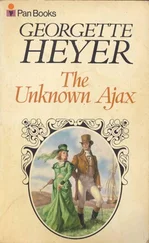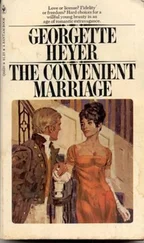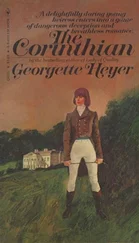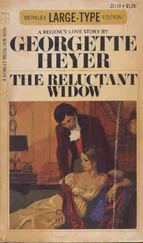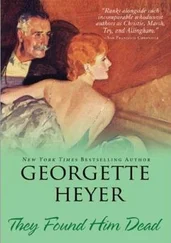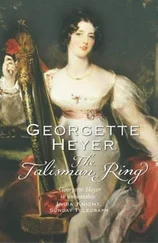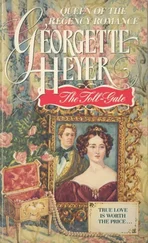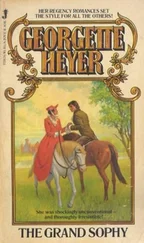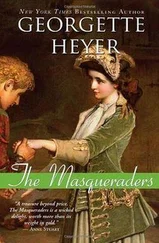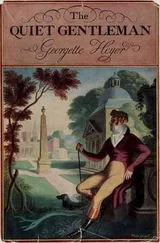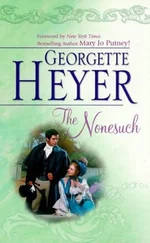"Oh, my God!" cried Geoffrey, and rushed from the room.
Guest folded up his napkin and put it into its ring. "I rather think we've sat over this meal long enough," he remarked, and got up. "Anyway, I'm through."
"Well, tell Fay I hope her headache's better," said Francis, selecting a nectarine from the dish in front of him.
Guest had reached the door, but he stopped and took a half-step back into the room. For one moment a very ugly light indeed shone in his eyes. Then he turned, and walked calmly out of the room.
"A strong man roused," commented Francis, peeling the nectarine. "Whatever can I have said to annoy him?"
At half past two Mr. Lewis took his departure, and both Lola and Camilla went upstairs to rest until tea-time. Stephen Guest was nowhere to be seen, and Halliday, realising that Mr. Tremlowe was waiting to read the General's Will, tactfully withdrew into the billiard-room.
The Will had been drawn up five years previously, and contained no surprises. Fay received an annuity on the condition that she did not marry again; Francis received 1,000; and with the exception of a number of small legacies to servants and pensioners, the rest of the General's property was left to his son Geoffrey.
Geoffrey was so much relieved to find that he had not been disinherited in favour of Francis that he became quite friendly towards his cousin, and having told him that he was sorry Sir Arthur had not left him a larger sum, he took him into the garden, and tried to impress upon him the true nature of his feelings towards Lola.
Dinah, gathering flowers on the other side of a clipped yew-hedge, heard him say earnestly: "Of course I realise you were only joking, but you know it might be frightfully serious for me if a story like that got about."
Gosh, what a fool he is! thought Miss Fawcett scornfully, and withdrew to the garden-hall with her basket.
Twenty minutes later she walked into the morning-room, carrying a bowl of sweet-peas, and found Inspector Harding standing in front of the bookcase wit I i a volume open in his hand. "Oh, I'm so sorry!" she said. "I didn't know you were here. May I just put these on the table?"
"You can do anything you like," said Harding, with a smile. "It isn't my house, you know!"
"Well, it isn't mine either, if it comes to that. I thought I might be disturbing you." She glanced at the book in his hand. "Hullo, doing a crossword puzzle," she inquired.
Harding returned Chambers's Twentieth Century Dictionary to its place on the shelf. "No," he replied. "Not a crossword puzzle. Another sort of puzzle. What has been happening to annoy you?"
Dinah looked sharply up at him. "You don't miss much, do you, Mr. Harding?" she said.
"I only thought you looked a trifle cross," explained Harding.
She grinned. "Well, as a matter of fact I'm fed up to the back teeth," she announced. "At any moment now I should think we shall all turn into a set of lunatics, and start gibbering at you."
"Oh no, don't!" begged Harding. "Tell me what's fed you up instead."
Dinah sat down on the arm of a chair. "I'm not at all sure that you aren't being serpent-like," she said.
"However, I'm past caring, and the sooner you arrest somebody for this murder — preferably Francis — the better."
"What has he been doing?" inquired Harding.
"Making mischief," said Dinah viciously. "I say, did he pinch that money, do you think, or did Arthur really have remorse, and send it to him?"
Harding said, watching her: "I don't know. Are you anxious about it?"
"Anxious?" said Dinah.
"I thought," Harding said diffidently, "that you seemed to be on terms of great friendship with Captain Billington-Smith."
"Then I don't think much of you as a detective," said Dinah. "I can't stand Francis. How on earth did you come to make such a mistake?"
Inspector Harding apologised. "I don't think my judgment was likely to be entirely impartial on that point," he said in extenuation.
Since this was spoken almost inaudibly Miss Fawcett did not quite gather its import, and continued briskly: "In fact, if someone's got to be arrested for having killed Arthur I'd rather it was Francis than anyone, except perhaps Camilla, and I suppose you can't manage to shove it on to her?"
Inspector Harding allowed this aspersion on his integrity to pass without demur, and merely remarked that he thought it would be difficult.
"A pity," said Miss Fawcett regretfully. "She's a frightful cad. And if she comes oiling up to you, as I rather think she may, with a whole lot of tales about anybody else, don't encourage her! You can't place the slightest reliance on anything she says, and she'll only lead you on quite the wrong track."
"Thank you very much for warning me," said Harding meekly.
Miss Fawcett blushed. "You're laughing at me."
"I shouldn't dream of laughing at you," he said.
Miss Fawcett became aware suddenly that Inspector Harding was regarding her with a light in his grey eyes that was far from professional. She felt her cheeks groom rather warmer. "Well, I must go and do the rest of the flowers," she said, with great presence of mind, and got up. "I suppose there's nothing you want? You'll ring it there is, won't you?"
"No, I don't think I shall ring for it," said Harding, with a faint smile. He held open the door, and Miss Fawcett retired in good order.
The police car which had conveyed the Sergeant to Bramhurst did not return to Ralton until quite a late hour. The Sergeant found Inspector Harding at the police station, and at once proceeded to give him a faithful account of his investigations. These had been most thorough, for, acting on the Inspector's instructions, he had made inquiries at numerous points along the road, and although in most instances he had drawn blank, he had traced an A.A. official to his home, and ascertained from him that Captain Billington-Smith's car had passed the big cross-roads a few miles south of Bramhurst shortly after one o'clock. The A.A. man remembered the car, for he had held it up to allow a lorry to pass first, but he had not noticed whether it was running badly. This, coupled with a positive statement from the mechanic at the garage in Bramhurst that Captain Billington-Smith had driven his car into the yard at one-thirty precisely, seemed to prove that either Captain Billington-Smith's watch had been an hour slow when he looked at it, or that he had his own reasons for wanting to make the police believe that it was twelve thirty when he arrived at Bramhurst. As to the choked jet, it had certainly been cleaned, but whether it had been in a bad enough condition seriously to impede the running of the car was a point on which the Sergeant could not induce the garage hands to put forward an opinion. The spare tyre had certainly been flat, and he had mended this while Captain Billington-Smith was having lunch. The waiter at the Stag corroborated the evidence in as much as he was able to state that the Captain had not entered the dining-room until a quarter to two, which circumstance he remembered perfectly, the Captain having been the last person to order lunch that day.
Inspector Harding had also been making investigations, and the results of one of these came to hand , at ten o'clock that evening, when he received a note from the Superintendent summoning him back to the police station. Here there awaited him a spare and weather beaten man in a plain suit who had certain information to give him. He was the postman who served the Lyndhurst district, and he was able to state definitely that on Monday morning at eleven-thirty when he was on hip way up to Dean Farm by the cart-track that ran between Moorsale Park and the Grange, he had passed Captain Billington-Smith's car, parked a little way up the track hard against the spinney at the bottom of the Grange garden. The track was scarcely ever used, the main approach to Dean Farm being from the main road on the other side, but he himself always used this back entrance, to save a long detour.
Читать дальше
